Dating as a Black Muslim in the UK: ‘My identity is important’
Although the UK’s Black Muslim community is culturally diverse, it only comprises 10 percent of the UK’s Muslim population. This can make dating or finding a marriage partner particularly difficult.
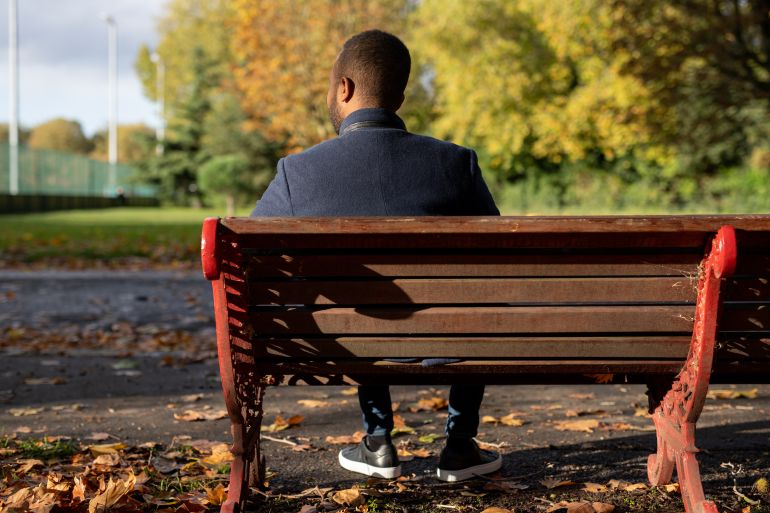
“I’m increasingly coming to terms with the fact that I may never get married,” said Mustafa, a 34-year-old Black Muslim man who asked that we not use his real name.
He has been on two dates with women he met on dating apps in the past year – and they left him feeling fatigued and doubtful that he would ever find a genuine connection with someone.
Keep reading
list of 4 items‘I hear the screams’: Tulsa race massacre remembered
‘No stopping us’: The Black women fighting for Breonna Taylor
How are Black composers shaping opera?
He had turned to the apps, he said, because, there is no dating scene in his British-Somali community. But, he lamented, “it’s really hard to find someone. And that’s true for every online dating app, it doesn’t matter if it’s Muzmatch, Tinder or Hinge.”
This is not how Mustafa imagined his life would be in his mid-thirties. When he was younger, he pictured himself as a devoted husband and loving father to a couple of children by now. In this mental image of familial bliss, he was also living in a picturesque cottage in the English countryside complete with “a lake or something”.
Instead, he recently celebrated his 34th birthday single and living in a flat overlooking the Wembley Stadium arch in North West London. But, he added with a shrug, “I’ve started learning how to cycle.”
Discussing his hobbies and interests – cycling, reading, writing – he sounds more optimistic. He has directed his energy away from the fickle and unpredictable pursuit of love and towards those variables of his life he can control, like picking up new pastimes. He isn’t alone in this.
‘All they see is a Black guy’
Although the United Kingdom’s Black Muslim community is culturally diverse, including people from a wide range of African and Caribbean backgrounds, it only comprises 10 percent of the UK’s Muslim population. This can make dating or finding a marriage partner particularly difficult.
A recent survey by Muzmatch, a Muslim-specific dating app that has been heralded for helping 20,000 Muslims meet and marry since its launch in 2015, revealed the challenges faced by Black Muslims dating in the UK. Muzmatch asked 471 of their members from different ethnic groups if they felt that race and ethnicity affected the matches they received and whether they had negative experiences as a result of this. In their answers, Black users pointed to a range of issues – including fetishisation, colourism and discrimination.
Most of the Black women surveyed complained about being fetishised and branded “exotic”. One West African woman described how dark-skinned women were considered unattractive and how she had been called the n-word by one user.
A Sudanese man expressed concern that he was matched with women with similar interests to him who subsequently rejected him because their family wouldn’t accept him. “It doesn’t matter if you’re on your deen and have a successful career. All they see is a Black guy,” he explained.
Mustafa had similar experiences. He discovered that his popularity on dating apps was directly related to his race and ethnicity. “Many non-Black Muslim women do put a disclaimer on their profile that their families would not accept anyone outside their ethnicity, or even ethnic groups,” he said.
Muzmatch currently has 5 million registered users worldwide. All users are required to upload at least one photo to confirm their identity, but once this is done, they can control who can see their photos. The app includes filters like age, occupation, height and ethnicity, which was added last year after users complained that they didn’t feel represented on the platform.
“In the broader sense, the goal of Muzmatch is to integrate the Muslim community,” explained Shahzad Younas, the app’s founder and CEO. “But we also want to uplift minorities from smaller groups and help them find each other.”
‘A generation that just swipes’
Most of the women Mustafa has matched with on Muzmatch and other dating apps have been Somali. “While Somalis are comparatively a smaller number, [in comparison to South Asians] almost all my matches have been Somali women,” he said. The decision to date within his community has been more a result of this than a matter of personal preference.
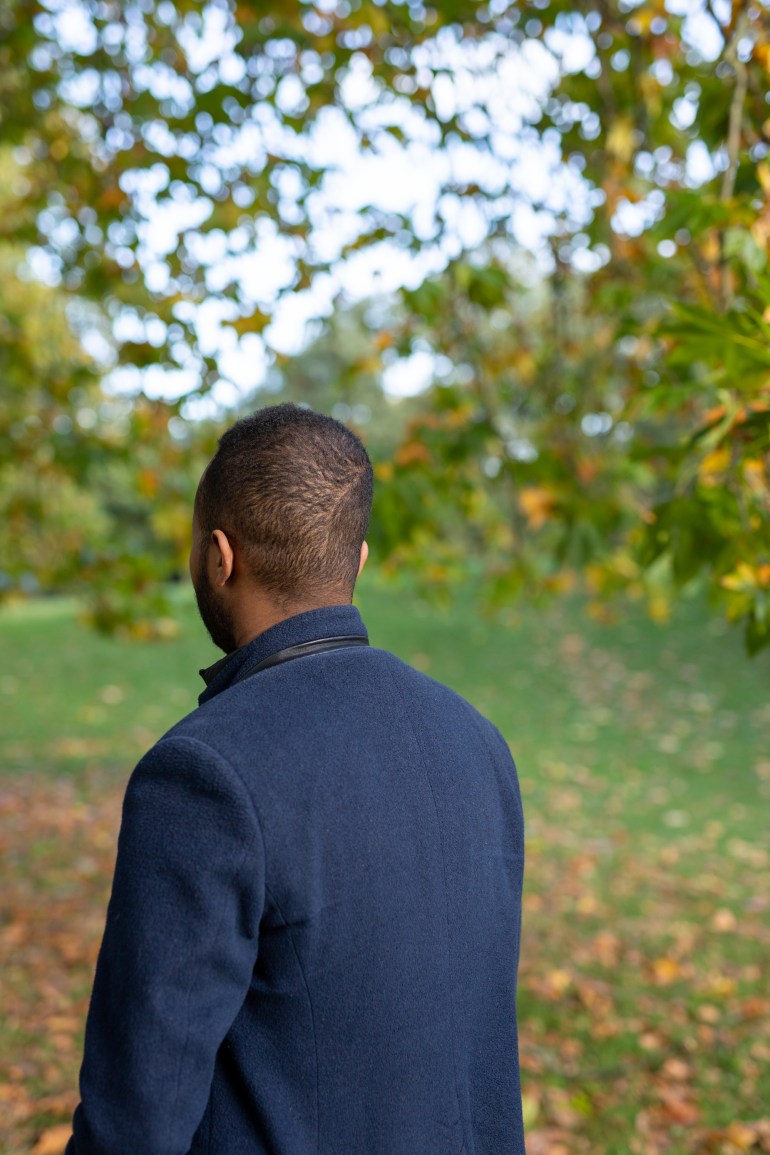
Mustafa was in love once. He said he knows this because it felt “better than dreaming”, better even than his country-house-by-a-lake fantasy. She was a Black Muslim he initially met online. When she was a student and he was working, he would travel across London to see her after work and accompany her on late-night study dates on campus. When they broke up – her decision, not his – he said it “really, really broke” him. They have remained quite close. “It didn’t work out but she’s happy and I’m happy because of that,” he added.
A few months after the break-up, he revisited online dating. “To go from that to apps where people don’t want to share their photos or speak on the phone was devastating,” he said.
He has missed the intimacy of physical interaction. “We’ve become a generation that just swipes. We swipe not because we’re conscious of what we’re doing, but because it’s a force of habit,” he reflected.
“That’s why I would rather use my energy and time to learn how to ride a bike,” Mustafa laughed.
An apocalypse at a Thai restaurant
Twenty-five-year-old marketing assistant Khadija offered an insight into the perspectives of the Black Muslim women using these dating apps.
The Londoner of Somali descent said she’d had crushes in the past but it wasn’t until she was at university that she “entertained the idea of seeing someone”.
Khadija believes that many Black Muslim women experience a prolonged teenagehood. She has only recently moved out of her family home and described what it was like to try to date while living with her mum. “Having privacy when you live with your family is so scarce. Sometimes, people want to FaceTime me on demand but that’s not how my family is set up.” When Khadija was living with family, and wanted to speak to a man on the phone, she would have to “book” the call with the person in advance to ensure her family wasn’t listening in on the conversation.

“I’m 25 but my mum now says to me ‘Oh Khadija, now is when you’re deciding to have your rebellious teenage phase?’ and I reply, ‘You didn’t let me have that proper phase when I was a teenager!’”
Khadija said she is “more inclined to date a practising Muslim than a practising Christian”. At times, she has dated non-Muslim Black men, but she said religion has always been dragged into the conversation, often with a hefty dose of Islamophobia.
This was the case with her last date – with a Black Christian man she was matched with on Hinge, a match-making app that bills itself as the “only dating app” focused on cultivating long-term connections between its users.
She was initially attracted to him based on his photos on the app, she explained. They agreed to meet for dinner at a Thai restaurant. But red flags soon started to appear. She said he spent much of the date interrogating her about her dating history and exes, but refused to answer the same questions when she asked them of him. When he told her that he hated his job, which involved counselling young Black boys, another flag was raised. But the real deal-sealer was when he discovered she was Muslim and asked, “If Prophet Muhammad was to come down from heaven right now and if he was gonna take all the do-gooders with him, what’s one thing that you’ve done that would get you left behind?”
Still stunned as she recalled the question, Khadija laughed, “How can you imagine the apocalypse and you’re already leaving me behind? This man clearly wanted me dead.”
When he asked to split the bill, Khadija said she thought, “I endured the interrogation, disrespect, and didn’t even get a free meal.”
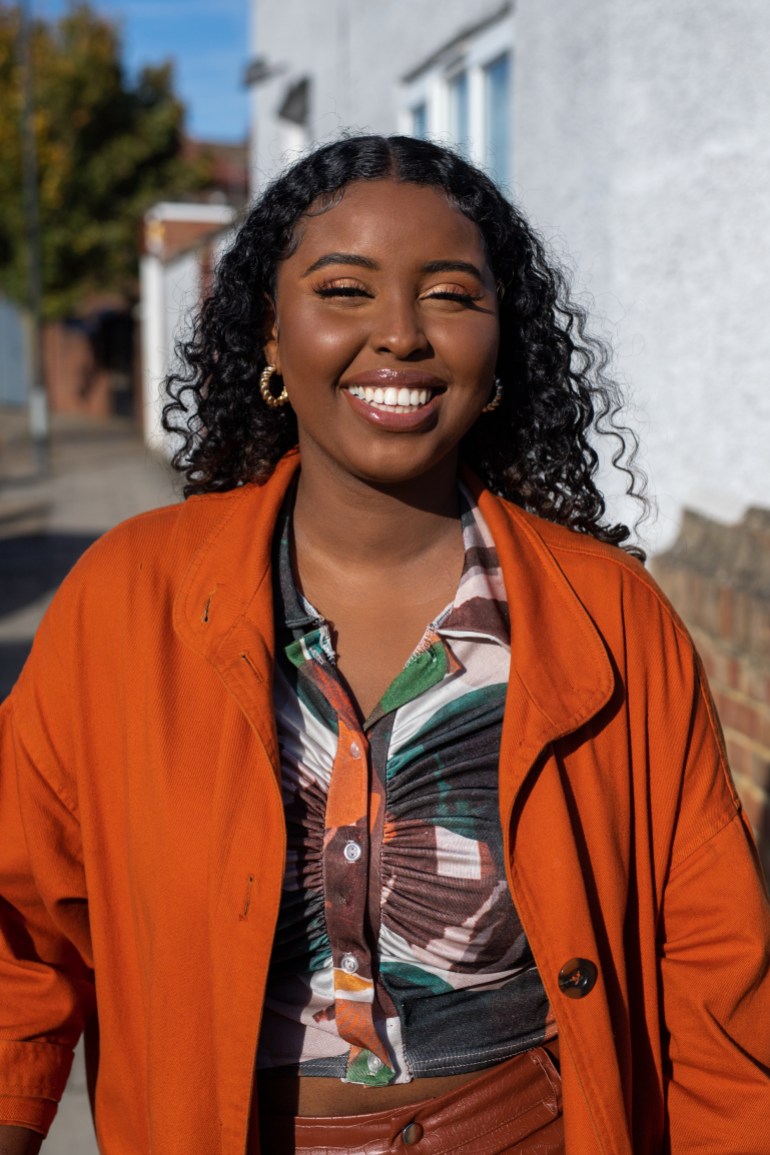
Despite being more inclined to date a Black Muslim man, to Khadija’s surprise, the best date she has had was with a white, non-Muslim man. They met online this past summer and spent a few days talking before he asked her out.
“I mentioned to him in passing that I’d never been to the beach but it was just a passing thought,” she remembered. Then, on the day of their date, they met at London’s King Cross Station. It was the first time they had seen each other in person. “I asked him where we were going, I didn’t even know what train we were catching. He just grabbed my hand and we started running. Finally, I look at the platform and it says: Brighton. And then he goes, ‘You mentioned that you’d never been to the beach before.’” The weather forecast had predicted rain that day, but instead, it was suitably sunny for Khadija’s unexpected jaunt.
They went on a couple of dates after that but the spark fizzled out. Still, if given the chance to do it all again – even with the same result – Khadija said she would. “Sometimes, when you date with a goal in mind, it detracts from the present,” she reflected. “My goal was to have a good time, and he set and raised the bar.”
‘My identity and community are important to me’
J, who asks that we not use his full name, is a 24-year-old Ghanian-British physiotherapist living in London. He has been single for the past two years. Just like Khadija, J said he is more likely to date a practising Muslim than someone of a different faith. But, unlike Khadija, he isn’t interested in dating someone outside of his race.
“My identity and community are the two most important things to me,” he said. In his view, without the foundation of shared experience, a marriage would not be sustainable. “I want to marry a Black Muslim. I can’t see past that world,” he explained. “Who knows, my Mrs may be a white English woman [but] I just don’t see it happening.”
That choice was his own, independent from any family pressures. “My parents aren’t fussy about it,” he shrugged. “My family doesn’t really care so long as I’m happy.” J was raised in an interfaith family with a Christian mum and a Muslim dad. His extended family is diverse and includes white and Caribbean members.
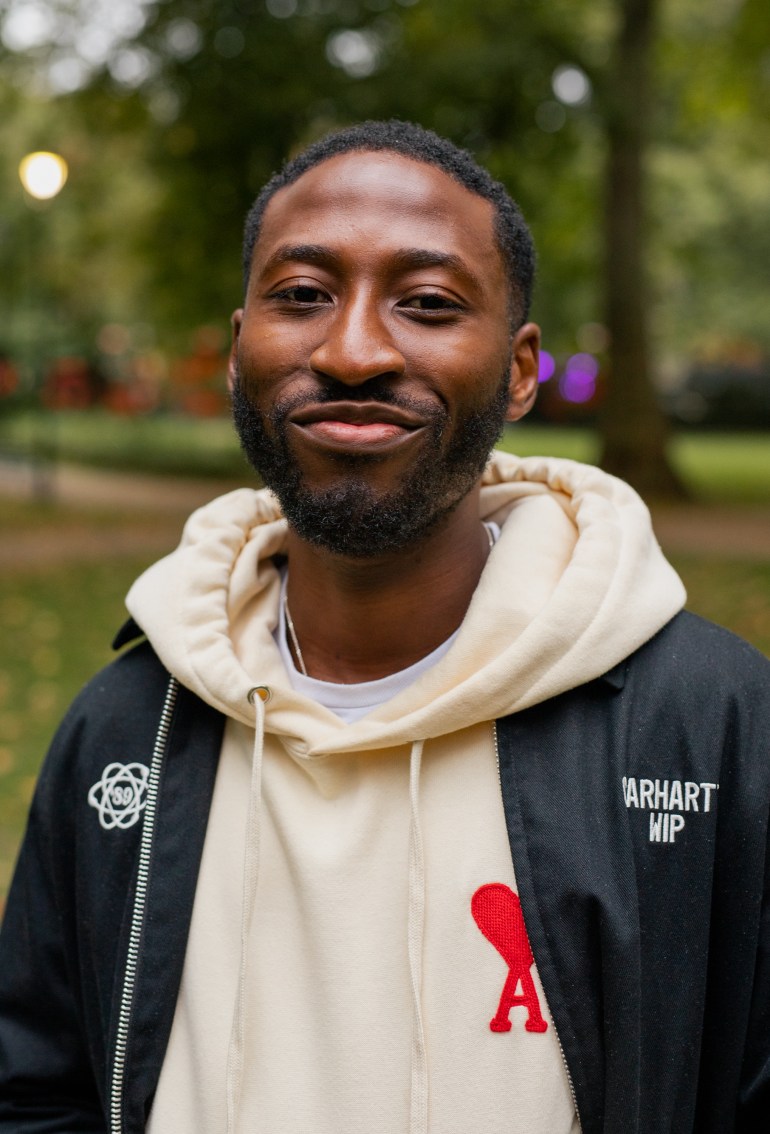
J met a Black Muslim woman recently. He isn’t easily impressed, he said, but she wowed him. When he described their first date, it sounds like something out of an Issa Rae production. They were introduced by a mutual friend and spent hours texting before spontaneously deciding to meet. “I didn’t intend to take her to Nandos for the first date,” he said, half smiling and half cringing by way of a disclaimer for committing what to many first-daters is near enough a crime. But they were walking down a high street during their impromptu meeting, feeling hungry, and there it was.
In fact, if anything, the informality of the environment helped increase the sense of comfort they felt around one another. She was particularly unfiltered, J said. She asked him if he hated Black women, then followed up by asking him if he was a colourist. Rather than be intimidated by her questions, J assured her that he wasn’t. His empathy was informed by the understanding that Black men can be colourists too. “As a dark skin man, a lot of us carry unconscious biases towards dark skin women which we actively need to unlearn,” he explained.
The date went well, but after a couple more, J said she started to ghost him. “It hurt because it was more of a phased disappearance rather than a cold exit,” he said.
Still, that heartbreak hasn’t discouraged him from dating again. “I’m a bit of a humanist in that respect. I think there’s somebody for everybody,” he reflected, adding, “Life can be sweet.”
‘A dialogue, not a monologue’
Habiba, a single, 50-something woman living in Birmingham, agreed. J and Habiba are generations apart yet they share an appreciation of the power of human connection. In an increasingly individualistic world, what can be more beautiful than feeling socially and romantically connected, she asked.
“We need love, we need companionship and we need to be flattered. We need to feel special. No matter how old you are,” she said sincerely.
Habiba was just 23 when she left her home in southwest Nigeria to be with her husband in England. It was October 1990, and England felt like a cold and lonely place far removed from the lively and hospitable environment she was used to.
Habiba and her husband had been separated for a long time before he died five years ago.
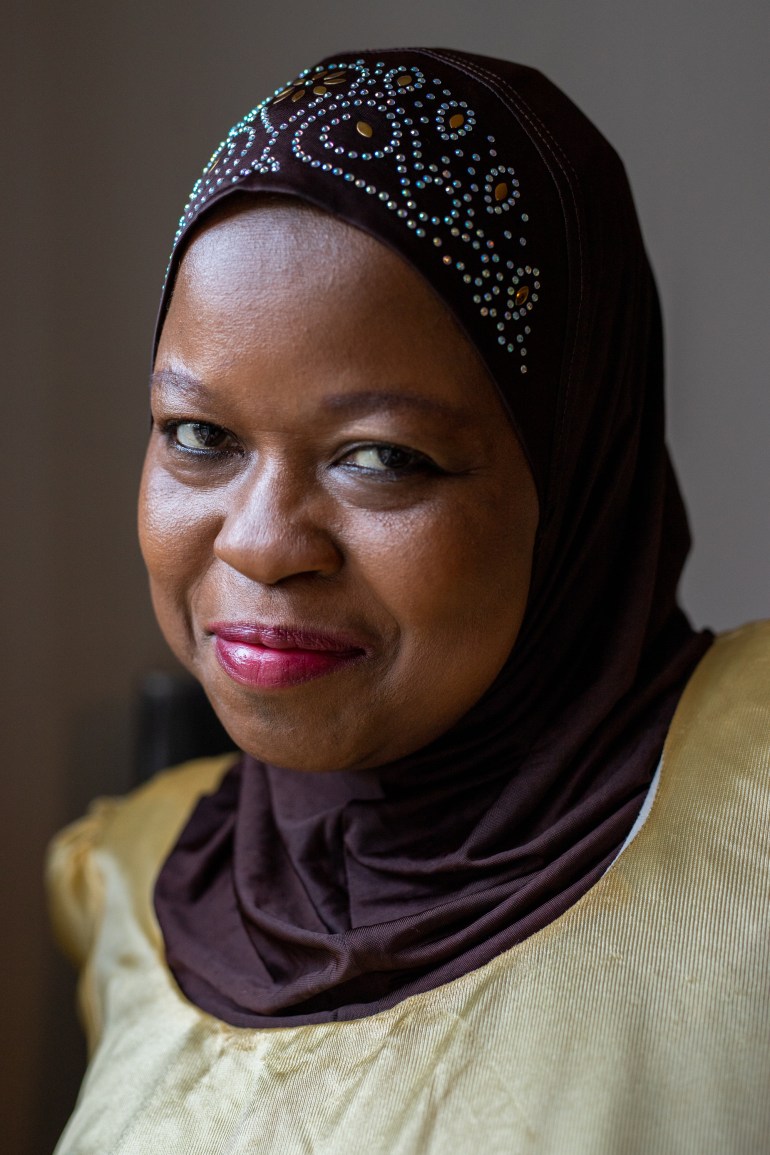
She described the challenges of marriage as being like “shell shock”. “We were far from perfect,” she said. “There are parts of my marriage I will never discuss with anybody, sometimes, it was his fault and sometimes, it was mine.”
Towards the end, she said, it came down to a decision between trying to save the marriage or prioritising the needs of their children. “I didn’t want to endanger them,” Habiba explained. “As they grew older and they began to lead their own lives, I realised it was time to start looking after myself. I didn’t want to be lonely.”
As her children grew up, and eventually moved out, she welcomed the thought of dating. One of her well-intentioned friends tried to play the role of matchmaker – setting her up with another friend who was also a Black Muslim. The friend had been trying for weeks without Habiba suspecting a thing. The man was renting out a property and Habiba’s friend arranged a house viewing supposedly with the intention that Habiba help him find a tenant. The friend urged her to “call him regularly”.
“Then I said to my friend, ‘what’s all this about?’,” Habiba recalled. “She said, ‘He’s very shy, I want you to stay in touch with him and keep him motivated so he can come out of his shell.’
“I said ‘He’s nearly 60, how can he be shy?’” Habiba added.
They dated briefly, but Habiba said he never quite escaped his proverbial shell. She said the relationship couldn’t mature because there wasn’t consistent communication. To illustrate her point, she described how he would only return one of every four of her calls. Several missed calls later, she blocked him on her phone and social media apps and hasn’t looked back since. “I don’t nag,” she stated.
Asked if she has any advice to impart to those with less experience she concluded, “Relationships are not for the selfish. It’s a dialogue, not a monologue. Communication is the backbone of every relationship. No matter how uncomfortable the subject, talk it out. Agree to disagree, but be forgiving.”